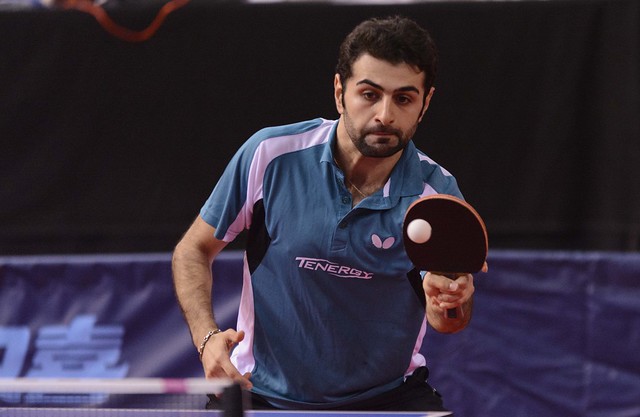by Ian Marshall, ITTF Publications Editor
Saki Shibata who won the Women’s Singles title earlier this year in Belarus and is the no.5 seed, is a formidable opponent, similar to colleague, Hina Hayata, the top seed, notable strides have been made in recent years.
In the counterpart Women’s Singles semi-final, Hina Hayata who win last year on the ITTF World Tour, faces Romania’s Bernadette Szocs, the no.9 seed and the winner earlier this year at the 2017 ITTF Challenge Brazil Open.
Notably all four Women’s Singles semi-finalists have enjoyed success at either an ITTF Challenge Series tournament or on the ITTF World Tour.
It is somewhat different in the Men’s Singles semi-finals; the only player to have enjoyed a similar accolade is India’s Sathiyan Gnanasekaran. He emerged successful at the 2016 ITTF World Tour Belgium Open; otherwise for the remaining three players who have advanced to the penultimate round it is unchartered territory.
At the semi-final stage, Sathiyan Gnanasekaran, the no.8 seed, meets Hong Kong’s Lam Siu Hang, the no.10 seed; in the opposite half of the draw Japan’s Kazuhiro Yoshimura, the no.6 seed, faces Ng Pak Nam, the no.14 seed and like Lam Siu Hang from Hong Kong.
A new name on the roll of honour is a possibility in the Men’s Singles event; in the Men’s Doubles it is an absolute certainty.
Russia’s Andrei Baibuldin and Vitali Murzin meet Korea’s Cho Seungmin and Park Ganghyeon; neither pair has ever reach an ITTF World Tour or ITTF Challenge Series final.
Meanwhile, in the Women’s Doubles event, it is very different; it is a first for India’s Mouma Das and Manika Batra but not for their adversaries Korea’s Jeon Jihee and Yang Haeun; they have appeared in no less than 14 finals on the ITTF World Tour, they have won seven times.









